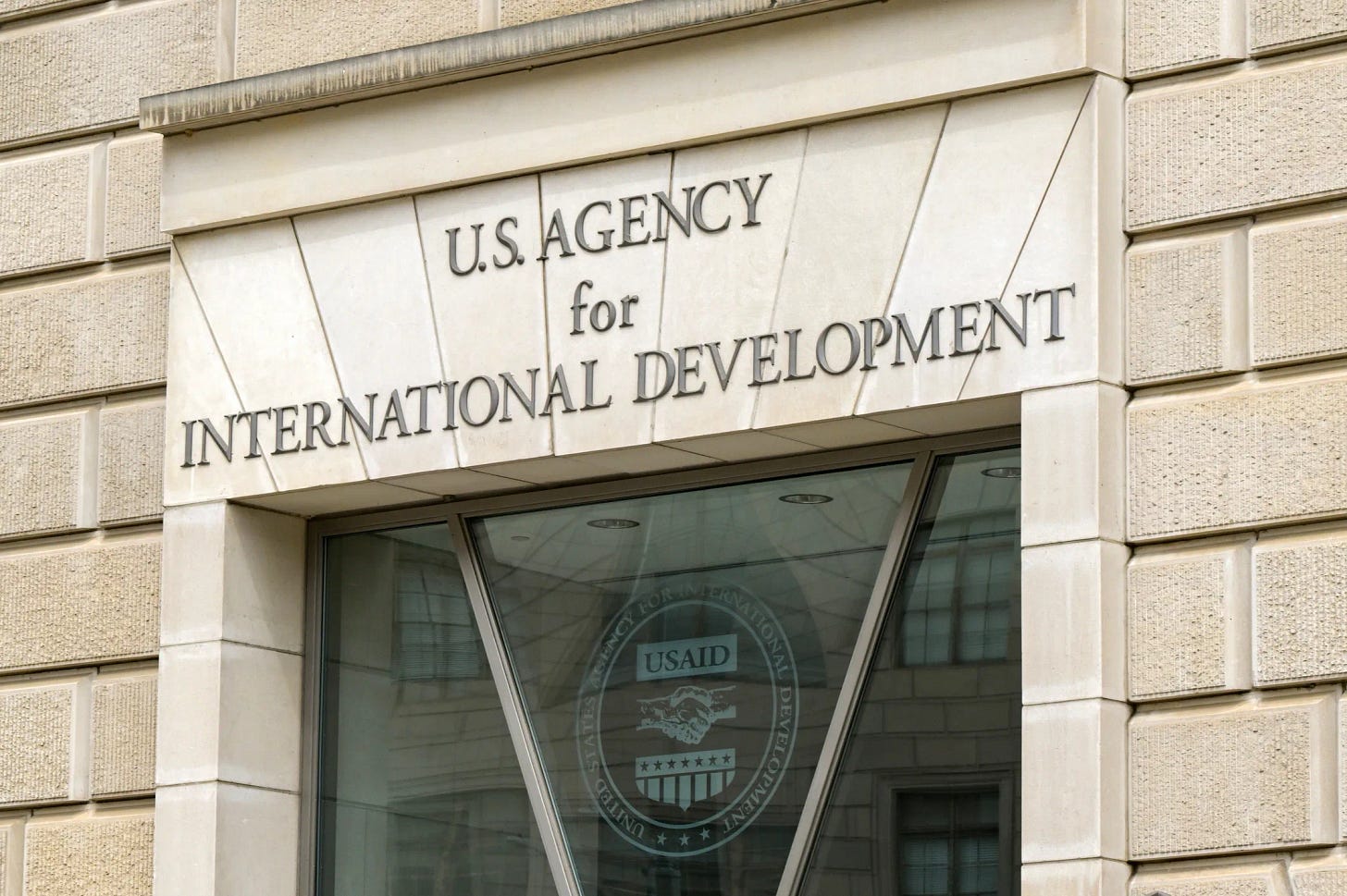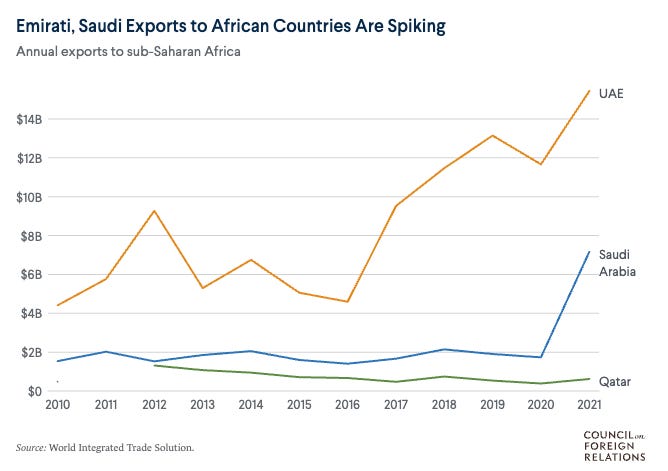A few weeks ago the United States Agency for International Development (USAID) was shut down by the newly established US Department of Government Efficiency (DOGE) led by Elon Musk. The intention behind this move was to cut government bureaucracy within an agency that Musk labelled a “criminal organization” that was beyond repair”. Last week, Secretary of State Marco Rubio confirmed that 83% of USAID’s programs had now been purged, while the remaining programs would now fall under the jurisdiction of the State Department.
A Wake-Up Call
This unexpected closure has unleashed profound, far-reaching consequences. Thousands of jobs linked to USAID have vanished almost overnight, leaving families in the US and around the world suddenly without income. Even more dramatically, tens of thousands who relied on USAID’s programs for critical financial support and resources now face an uncertain future. The blow has also impacted American farmers who benefitted for decades from initiatives like the Food for Peace. The immediate outlook is very bleak for those directly and indirectly affected, casting a long shadow over countless lives and communities. Organizations dependent on USAID funding in Africa are already feeling the pain:
“A supply-chain enterprise supporting thousands of African farmers has nearly closed its operations, while a prominent data-gathering company providing critical last-mile information for development institutions must completely restructure its business model. Even a climate accelerator in Cape Town, midway through recruiting its cohort, faces uncertainty after promised USAID funds failed to materialize.” - Aunnie Patton Power, Associate Fellow at Oxford’s Said Business School.
One prominent voice, former Kenyan President Uhuru Kenyatta, reacted swiftly, calling the closure a “wake-up call” for African leaders. The critical questions raised by Kenyatta resonate deeply across the continent: Should African nations continue to depend on such external developmental programs? Or should this moment unleash a rallying call for introspection and trigger a push toward genuine self-reliance?
A History of Development Agencies
To fully grasp the implications, it is essential to reflect on the origins of development assistance itself. As with most developmental agencies, USAID was never an altruistic enterprise. Instead, it was an integral pillar of a broader international relations strategy adopted by Western powers and imitated later by other nations to further their interests. The aim: Make sure their own geopolitical aspirations and motivations are represented and served.
The Colonial Development Fund
The United Kingdom’s Colonial Development Fund, established in 1929 (the interwar period), was the pioneer. Born out of imperial ambition and economic necessity, the fund sought initially to remedy neglect in Britain’s colonies by investing in infrastructure, agriculture and basic services. In its early years, the fund financed roads, schools and hospitals, laying essential groundwork and foundations for future growth and state‐led and private investment.
Over the post-war decades, despite criticism of its uneven impact and profit-driven reorientation, the fund evolved significantly and remained central to Britain’s strategy of linking development with economic self-reliance in emerging markets. Today, rebranded in the 21st century as British International Investment, its storied legacy embodies both the complexity and ambivalence, as well as the ambition and adaptability inherent in global development practices and colonial statecraft.
USAID
President John F. Kennedy wanted the 1960s to be a "Decade of Development”. He established the USAID in 1961 amid Cold War tensions and the legacy of the Marshall Plan. Designed initially to counteract Soviet influence through economic and humanitarian assistance, the USAID gradually consolidated America’s disparate foreign assistance programs into a single, independent agency. Over the decades, it quickly became a cornerstone of American “soft power,” channeling billions of USDs in development funds to more than 100 countries to pioneer initiatives from global health to food security.
Its mission kept evolving. From bolstering democracy and economic stability during the Cold War to addressing modern challenges like pandemics and climate change, USAID enjoyed bipartisan support for most of its history. But as the focus shifted, so did the sentiment around it. Its periodic - and sometimes high-profile - critics intensified in recent years, with growing accusations of wasteful expenditure and strategic irrelevance, pertaining to inefficacy and political misuse. However, with support from both Democratic and Republican administrations (except notably the Trump era), its enduring role in promoting US strategic interests abroad remains undisputed.
Still, its dissolution marks a dramatic turning point, raising critical questions about who - or what - will fill the resulting void.
“The Trump administration is starting to back up on the DOGE cost-cutting. We saw this last time with the Overseas Private Investment Corporation (OPIC), which was originally shut down, but essentially it was de-prioritized. It later re-emerged as the Development Finance Corporation (DFC). The language that I'm hearing coming out now, both formally and informally, is around prioritizing investments for the American people. The reason OPIC was resuscitated as DFC was because it was discovered that it was the only part of the US government that makes money.” - Aunnie Patton Power
Is Self-Reliance Feasible?
Optimism for self-reliance must face a reality check. Skeptics argue that replacing USAID’s funding is unrealistic, mainly because African nations simply cannot afford to sustain these programs independently due to a lack of financial resources and institutional frameworks. The chart below from the World Bank shows the variance in public social expenditure as a percentage of GDP for a sample of African countries.
Numerous nations across the continent rely heavily on foreign development assistance as a significant portion of their gross national income, demonstrating the immediate vulnerability now facing these economies.
Yet, interesting alternatives are emerging:
“In Ghana, local pension funds are investing in impact initiatives. South Africa is seeing increased activity in impact investing markets, pointing to a possible rise in private and local capital participation. As Kenyatta emphasized, there is an urgent need for African governments to prioritize essential state services and actively encourage local private capital participation.” - Aunnie Patton Power
However, there is a lack of comprehensive data available to track private social expenditure and philanthropic activity in these markets in order to gauge the overall level of spending on social programs. This is a vital piece of the puzzle and its data scarcity complicates efforts to assess alternative sources of funding. In OECD countries such as the US, the Netherlands and Switzerland, private voluntary social expenditure is a key contributor to overall social investment.
Could such private philanthropy realistically fill the gap left by the USAID abrupt funding cutoff?
The Emerging Power Vacuum
Now that USAID has been effectively dismantled, the question-of-the-hour remains: What comes next? The Trump administration’s encouragement of DOGE’s aggressive cost-cutting may have waned in the last few weeks. But waiting for an about-face to reinstate these programs, especially under such a volatile and unpredictable presidency, is unrealistic. In fact, the move has set a precedent now mirrored by other Western nations, including recent announcements by the UK to reduce their aid budgets.
Will non-Western powers fill the void?
China is already deeply engaged in Africa, spending billions on trade, technology and infrastructure deals. But this spending habit is not similar to the one from USAID - China has historically preferred commercial deals over Western aid practices. China-Africa analysts are skeptical about a sudden change in strategy, but let’s not forget that a very opulent opportunity to fill the void is emerging, offering the country a momentous gateway to soft power on a silver platter. I believe this must be something they are considering.
Similarly, Gulf states - namely the UAE, Saudi Arabia and Qatar - have steadily and surely increased their economic engagement with Africa over the last few years. They have done so to further their strategic interests with a focus on import diversification, port access, mining of raw materials and food security. The power vacuum resulting from the departure of Western donors in Africa creates a significant opportunity for these GCC powers to fortify their political and economic footholds on the continent - and thus, their influence.
Charting a New Course
The disruptive and controversial closure of USAID by Musk (very much on brand), though no doubt a crisis in the short-term, may be a blessing in disguise. It could serve as a crucial catalyst for governments and private sectors across the continent to pursue deeper regional cooperation, build less fragile economies and reduce dependency on external influences. The best part: It’ll be far away from the conditionality of foreign superpowers designed to further their strategic interests - and it could spur long-term, genuine economic transformation in the region, and even greater autonomy across the developing world. It’s time for Africans to take ownership of and set a new path for development.










There has always been a ‘love-hate' relationship with international aid. As you rightly mention, much development assistance from the west is not given altruistically—there are conditions imposed that benedit the donor countries, for example in the case of USAID, and of course, there are poltical motives to support certain countries over others. But to have the rug pulled so quickly from under their feet is cruel and inhumane—hundereds of millions of people, often the poorest of the poor, depend on the foods, medicines, technology, and other support provided by USAID. As these programs collapse it will not be so easy to rebuild them. People will die. As you mention China and other players will step in to fil in the vacuum. I do agree that it is time for African and other aid recipent countries to start cooperating to help each other, and to take responsbility to address income disparites within their own countries.